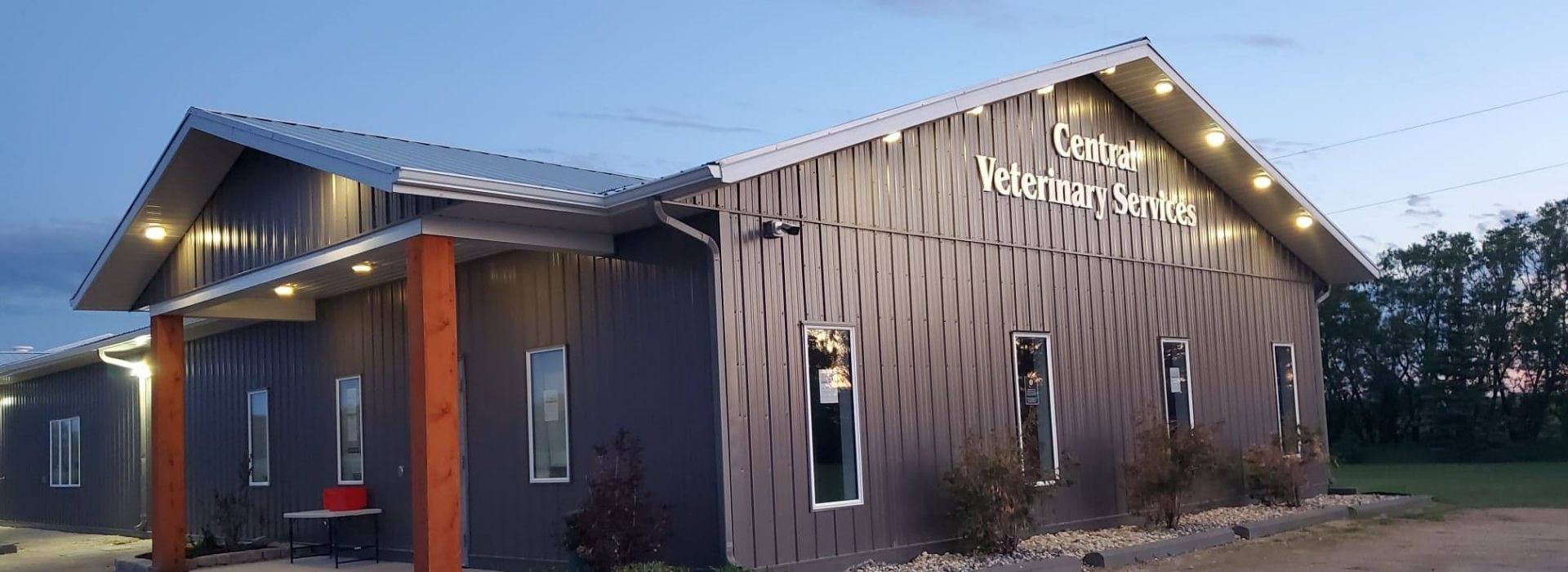How a Veterinary Specialty Hospital Can Treat Your Pet's Conditions With Advanced Techniques
Veterinary specialty hospitals play a crucial function in addressing intricate health problems in family pets. They utilize sophisticated techniques and modern technologies that enhance medical diagnosis and therapy. With accessibility to specialized solutions, animal owners can find tailored solutions for their pets' disorders. This increases vital concerns regarding the details techniques used and the benefits they give. Understanding these aspects can notably impact a family pet's recovery journey.
Recognizing the Duty of Veterinary Specialty Hospitals
Primary care vets offer necessary services for pet health and wellness, vet specialty hospitals play a crucial function in dealing with complicated medical problems that require sophisticated diagnostics and treatment. These centers are furnished with specialized innovation and seasoned professionals who concentrate on specific locations of veterinary medicine, such as neurology, oncology, and cardiology.
Veterinary specialty hospitals facilitate a collaborative strategy, often functioning in conjunction with an animal's key veterinarian to develop complete care strategies. They give access to sophisticated imaging strategies, such as MRI and CT scans, which are not normally offered in standard centers. Additionally, these hospitals provide critical care unit for seriously sick pets, ensuring day-and-night tracking and support.
Specialized Providers Supplied by Veterinary Experts
Veterinary experts provide important services that boost animal medical care, particularly via innovative diagnostic imaging strategies. These devices enable precise evaluations of intricate clinical conditions, bring about extra efficient targeted therapy plans. By incorporating these specialized solutions, vet hospitals can substantially boost patient results and general wellness.
Advanced Diagnostic Imaging
Advanced analysis imaging plays a crucial role in modern-day veterinary medicine, making it possible for professionals to acquire comprehensive understandings into a pet's health and wellness. Techniques such as X-rays, ultrasound, computed tomography (CT), and magnetic resonance imaging (MRI) allow veterinarians to visualize inner structures without intrusive treatments - Learn More. These sophisticated imaging modalities help in detecting a range of conditions, from growths and cracks to body organ abnormalities. By providing clear photos, they improve the accuracy of assessments, which is important for effective treatment preparation. Additionally, specialized veterinary radiologists translate these images, making certain that refined concerns are not forgotten. Inevitably, advanced diagnostic imaging is critical in supplying considerable treatment, as it enables for very early detection and intervention in a pet's medical concerns

Targeted Treatment Plans
Targeted treatment strategies are essential for attending to the certain health demands of family pets, making certain that each animal obtains personalized care customized to its special condition. Veterinary experts develop these strategies based on comprehensive analyses, including advanced analysis imaging and lab examinations. By concentrating on the specific pet dog's medical diagnosis, age, lifestyle, and type, experts can prescribe effective treatments, ranging from medication modifications to medical interventions. These plans likewise incorporate follow-up care and monitoring to track the animal's progression and make essential adjustments. This method promotes optimal results and improves the overall top quality of life for pets facing intricate health and wellness challenges. Eventually, targeted therapy plans represent a commitment to providing the highest requirement of vet treatment.
Advanced Diagnostic Techniques for Accurate Diagnoses
As animals face significantly complicated wellness difficulties, the combination of sophisticated analysis methods has actually come to be crucial for attaining precise diagnoses. Veterinary specialty hospitals make use of state-of-the-art imaging technologies, such as MRI and CT scans, to imagine internal structures with remarkable quality. These techniques allow vets to determine irregularities that might not be visible with conventional approaches.
In enhancement to imaging, advanced lab tests, including genetic and biomarker evaluations, give important insights into hidden problems. These examinations make it possible for vets to spot diseases at earlier stages, facilitating prompt intervention. In addition, making use of endoscopy enables direct visualization of inner body organs, assisting in the medical diagnosis of gastrointestinal and respiratory system concerns.
Innovative Treatment Options for Facility Conditions
Ingenious therapy alternatives for complicated conditions in pets have actually arised as a vital focus within veterinary specialty hospitals. Making use of sophisticated diagnostic devices, these centers enhance their ability to identify issues precisely and tailor proper treatments. Veterinary. Furthermore, the execution of minimally intrusive treatments and progressed rehab techniques offers pet dogs a far better possibility at recovery with lowered discomfort
Sophisticated Diagnostic Devices
While the landscape of veterinary medication proceeds to evolve, sophisticated diagnostic tools have arised as important possessions for resolving complicated problems in family pets. These innovative modern technologies, consisting of electronic imaging, ultrasound, and molecular diagnostics, allow veterinarians to obtain precise information about a pet dog's health condition promptly. For example, high-resolution imaging techniques can expose intricate details of interior structures, making it possible for exact assessments of illness or injuries. Furthermore, hereditary testing gives insights right into hereditary conditions, directing tailored therapy plans. By leveraging these cutting-edge diagnostic devices, veterinary specialty hospitals can enhance their capacity to recognize conditions that may have formerly gone unseen. Inevitably, these advancements add to boosted outcomes and enhance the general high quality of treatment provided to cherished pets.
Minimally Invasive Treatments
Developments in veterinary medication have actually led the way for minimally intrusive treatments, which provide brand-new treatment alternatives for intricate problems in pet dogs. These ingenious techniques, such as laparoscopy and endoscopy, permit vets to execute surgical treatments with smaller cuts, minimizing injury and recuperation time. By utilizing specialized cameras and tools, vets can detect and deal with concerns like tumors, food poisonings, and joint issues with accuracy - Learn More. This technique lessens pain and brings about quicker healing, allowing pets to go back to their normal activities earlier. In enhancement, minimally invasive treatments usually cause less scarring and a lower threat of problems. As veterinary specialty hospitals adopt these sophisticated approaches, animal owners can really feel a lot more confident in their pets' treatment and total wellness
Advanced Rehab Techniques
As vet medicine evolves, advanced rehabilitation techniques are ending up being essential for managing complex problems in animals. These methods include a variety of cutting-edge treatment choices, consisting of hydrotherapy, laser treatment, and physical treatment. Hydrotherapy makes use of water resistance to boost flexibility and reinforce muscles, advantageous for family pets recovering from surgical procedure or injury. Laser treatment advertises healing by decreasing swelling and pain, fostering quicker healing times. Physical therapy uses targeted exercises to boost stamina and adaptability, customized to each animal's details requirements - Veterinary. In addition, methods like acupuncture and chiropractic adjustments can better support rehabilitation by easing pain and boosting overall health. Veterinary specialty hospitals are significantly incorporating these methods, ensuring animals receive detailed treatment that addresses both psychological and physical recuperation, inevitably enhancing their lifestyle
The Value of a Multidisciplinary Approach
A multidisciplinary approach in vet care considerably enhances the treatment end results for pet dogs, as it integrates knowledge from different specialties to deal with complex health and wellness problems. This collaborative approach entails veterinarians, specialists, service technicians, and assistance staff interacting to formulate comprehensive therapy plans tailored to each pet's special demands. By combining knowledge from fields such as surgical procedure, inner medication, oncology, and rehab, veterinarians can determine hidden conditions that may or else go unnoticed.
This technique cultivates interaction among team members, ensuring that all elements of a family pet's health and wellness are thought about. A pet recouping from surgery might profit from input from both a rehab and a doctor professional, leading to a more effective recuperation process. Ultimately, a multidisciplinary technique not only improves the high quality of treatment but additionally boosts the general wellness of family pets, offering them with the best chance for a successful recuperation and long-term health and wellness.
Cutting-Edge Technology in Veterinary Medication

Telemedicine has additionally become a necessary source, allowing veterinarians to consult with pet owners from another location, therefore facilitating timely treatments. In addition, the integration of artificial intelligence in examining clinical information adds to a lot more efficient therapy strategies tailored to private needs. Innovative lab devices enables rapid blood analysis and virus detection, cultivating prompt clinical feedbacks. As vet specialty hospitals proceed to include these developments, they not only enhance the top quality of treatment however also significantly boost the total wellness of pets.
Success Stories: Real-Life Instances of Animal Recuperation
Various heartwarming success tales illustrate the amazing recuperations of pet dogs dealt with at vet specialty hospitals. One such case included Bella, a Golden Retriever diagnosed with an extreme orthopedic problem. After innovative medical treatment and rehabilitation, Bella was not only able to stroll once more yet also to run joyfully in the park, much to her owners' pleasure.
Another inspiring story functions Max, a pet cat with persistent kidney disease. With specialized dietary monitoring and cutting-edge therapies, Max's condition stabilized, allowing him to restore his power and appetite. His proprietors were tickled to see him go back to his playful self.
Lastly, Luna, a Dachshund who experienced a spine injury, underwent innovative treatments, leading to an amazing healing. These tales highlight the competence and compassion located in veterinary specialty hospitals, showcasing their ability to recover wellness and happiness to cherished pets and their families.
Frequently Asked Questions
What Should I Expect Throughout My Pet's Specialty Examination?
Throughout a specialized assessment, pet dog proprietors can anticipate an extensive examination, detailed medical history discussions, diagnostic tests, and tailored treatment alternatives. The vet expert will supply understandings and referrals for the animal's details health and wellness requirements.
How Can I Locate a Veterinary Specialty Hospital Near Me?
To find a vet specialty hospital close by, one can use online search engines, check local directories, or look for referrals from primary veterinarians. Furthermore, family pet owner discussion forums can give important insights and experiences concerning close-by centers.
Are Specialty Provider Covered by Family Pet Insurance Coverage?
Specialty solutions might be covered by animal insurance policy, yet insurance coverage varies by plan. Proprietors need to meticulously evaluate their insurance plan details and consult their company to recognize the level of coverage for specialty veterinary services.
How Much Time Will My Pet dog's Therapy Take?

The duration of a family pet's therapy can differ significantly, usually varying from a few days to a number of weeks. Elements influencing this timeline include the particular problem, therapy kind, and the animal's general wellness and feedback.
What Are the Costs Connected With Specialty Veterinary Treatment?
The expenses connected with specialty vet care can vary widely, generally ranging from hundreds to countless dollars. Elements More hints affecting these expenditures include the intricacy of the problem, required therapies, and diagnostic procedures needed for effective treatment.
Veterinary specialty hospitals play a vital role in dealing with complex health and wellness concerns in animals. Primary care veterinarians give vital solutions for pet wellness, vet specialty hospitals play an essential role in addressing intricate medical problems that call for advanced diagnostics and treatment. Veterinary specialty hospitals facilitate a collaborative approach, frequently functioning in conjunction with an animal's key veterinarian to develop complete care plans. Cutting-edge therapy options for complicated conditions in family pets have arised as a vital focus within vet specialty hospitals. A multidisciplinary method in vet care considerably boosts the therapy outcomes for pets, as it integrates expertise from various specializeds to deal with intricate health issues.